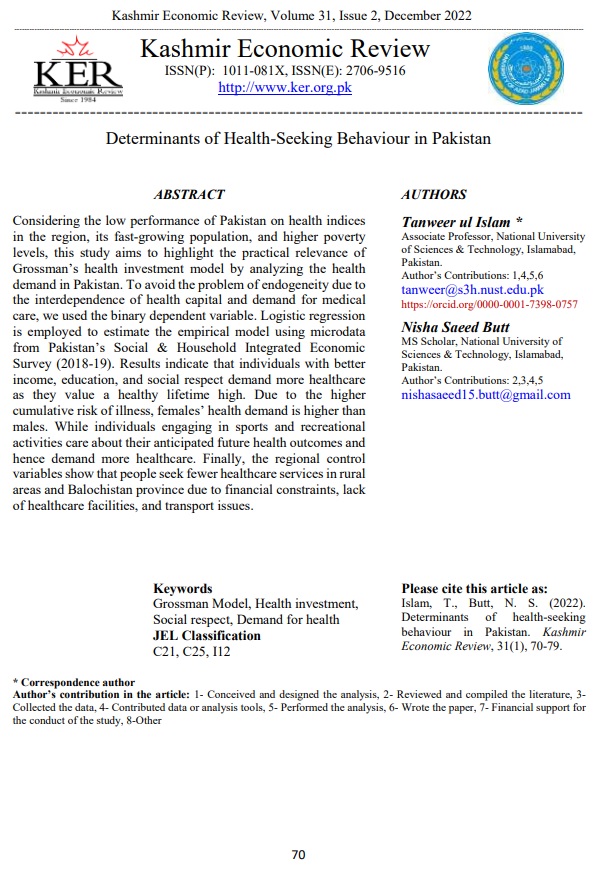Determinants of Health-Seeking Behaviour in Pakistan
Main Article Content
Abstract
Considering the low performance of Pakistan on health indices in the region, its fast-growing population, and higher poverty levels, this study aims to highlight the practical relevance of Grossman’s health investment model by analyzing the health demand in Pakistan. To avoid the problem of endogeneity due to the interdependence of health capital and demand for medical care, we used the binary dependent variable. Logistic regression is employed to estimate the empirical model using microdata from Pakistan’s Social & Household Integrated Economic Survey (2018-19). Results indicate that individuals with better income, education, and social respect demand more healthcare as they value a healthy lifetime high. Due to the higher cumulative risk of illness, females’ health demand is higher than males. While individuals engaging in sports and recreational activities care about their anticipated future health outcomes and hence demand more healthcare. Finally, the regional control variables show that people seek fewer healthcare services in rural areas and Balochistan province due to financial constraints, lack of healthcare facilities, and transport issues.
Article Details

This work is licensed under a Creative Commons Attribution-ShareAlike 4.0 International License.

